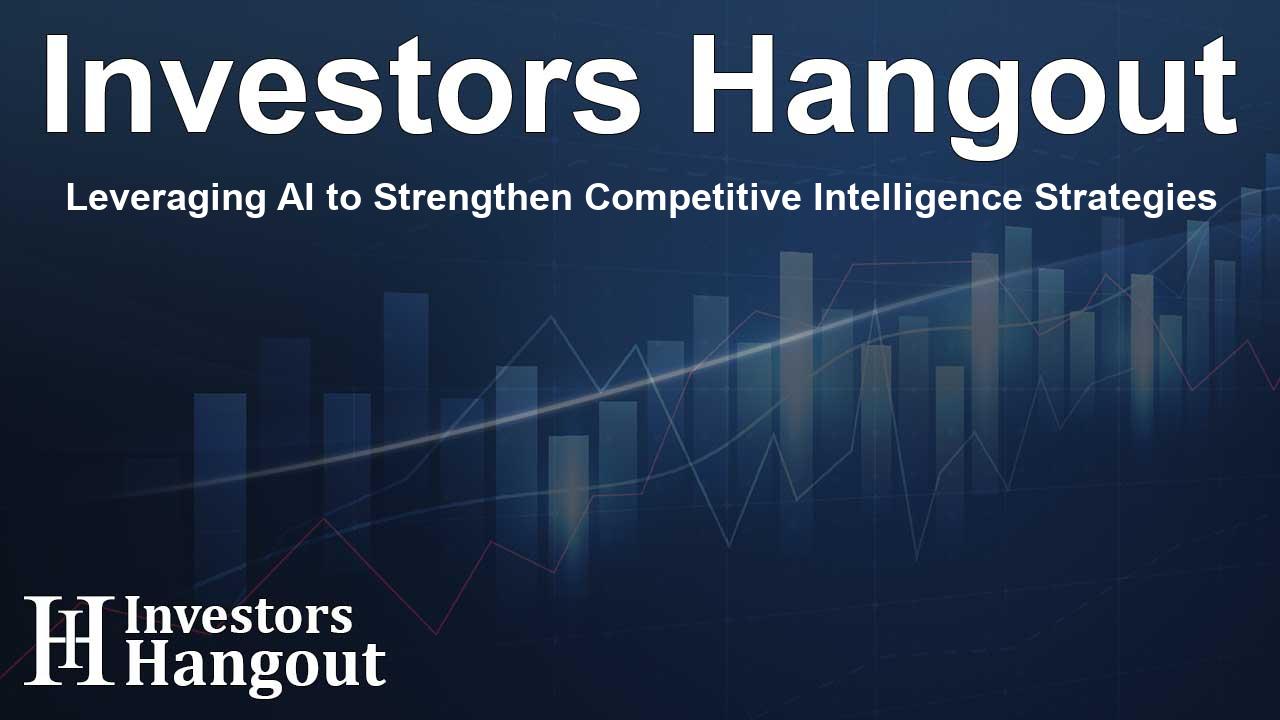Leveraging AI to Strengthen Competitive Intelligence Strategies

Elevating Competitive Intelligence Through AI Innovations
In today's fast-paced market landscape, where the tides can change almost overnight, having advanced competitive intelligence (CI) tools is integral for timely decision-making. Organizations now rely on AI-enhanced CI platforms to detect early warning signals, pinpoint emerging threats, and adjust their strategies accordingly. These technologies streamline data gathering, active analysis, and offer real-time oversight, allowing businesses to respond swiftly and accurately.
Why AI-Driven Competitive Intelligence is Essential
The pressures of rapidly changing competitive environments compel organizations to adapt quickly or risk losing their edge. Utilizing AI in competitive intelligence has become vital for anticipating competitor actions and subtleties in market dynamics. AI tools automate the collating of important data, enable ongoing monitoring, and provide predictive insights that are crucial for effective business strategies.
Challenges in Selecting Competitive Intelligence Tools
With various CI solutions on the market, businesses face difficulties when selecting the most suitable tools for their needs. Common hurdles include budget constraints, dependence on old and inaccurate data, and the absence of consistent procedures for managing intelligence. A structured approach is recommended to help organizations define specific needs, curate a list of vendor options, and prepare for successful implementation of CI solutions.
Insights from Info-Tech Research Group
According to a prominent source in IT research, organizations that concentrate exclusively on feature lists might overlook critical elements that foster competitive advantage. By placing emphasis on the right data sources and ensuring usability and outputs align with business goals, leadership can identify CI software that addresses both present needs and future growth opportunities. In their latest publication, Info-Tech Research Group elaborates on key trends transforming the CI software landscape.
Key Trends Shaping Competitive Intelligence Software
As organizations increasingly depend on innovative technologies, several trends are gaining prominence in CI software. Automation and predictive analytics driven by AI are transforming traditional methods. The growing reliance on social media and online data, the shift towards scalable cloud services, and a renewed focus on cybersecurity measures are reshaping how businesses approach competitive intelligence.
Effective Selection Methodology
The selection process for the right CI software can be simplified through a comprehensive methodology introduced by Info-Tech. This approach consists of three phases aimed at aligning IT and organizational leaders: defining CI software's capabilities, pinpointing unique business requirements, and selecting the best vendor. Each phase is intentional in leading teams towards making well-informed, strategic decisions regarding their CI investments.
- Phase 1 – Understand CI Software Dynamics
Organizations need to grasp what constitutes quality CI software. This entails evaluating standard features, understanding unique selling points, and considering market developments like AI automation and the application of social data. - Phase 2 – Define Organizational Needs
It's crucial for teams to compile a list of requirements based on primary use cases. This helps them create a tailored CI vendor evaluation sheet that can be instrumental during the RFI or RFP processes. - Phase 3 – Vendor Evaluation
The final phase narrows down potential vendors. Companies should aim to limit their demos to a select few providers, focusing the evaluation on real-world applications and collaborative capabilities.
Employing this structured methodology will empower organizations to maximize their CI investments, ensuring they yield tangible results to advance their market positions.
Frequently Asked Questions
What is competitive intelligence software?
Competitive intelligence software aids organizations in analyzing market conditions, tracking competitors, and making informed strategic decisions.
How does AI enhance competitive intelligence?
AI enhances competitive intelligence by automating data collection, enabling real-time monitoring, and providing predictive analytics for proactive decision-making.
What are the common challenges in selecting CI tools?
Organizations often grapple with budget constraints, reliance on outdated data, and lack of consistent processes for sharing intelligence.
What methodology does Info-Tech recommend for selecting CI software?
Info-Tech suggests a three-phase methodology that involves understanding CI capabilities, defining organizational requirements, and selecting the right vendor based on these criteria.
How can businesses ensure their CI investments deliver results?
By following a structured approach to defining needs and evaluating solutions, organizations can ensure their CI investments produce measurable outcomes that align with their strategic goals.
About The Author
Contact Dominic Sanders privately here. Or send an email with ATTN: Dominic Sanders as the subject to contact@investorshangout.com.
About Investors Hangout
Investors Hangout is a leading online stock forum for financial discussion and learning, offering a wide range of free tools and resources. It draws in traders of all levels, who exchange market knowledge, investigate trading tactics, and keep an eye on industry developments in real time. Featuring financial articles, stock message boards, quotes, charts, company profiles, and live news updates. Through cooperative learning and a wealth of informational resources, it helps users from novices creating their first portfolios to experts honing their techniques. Join Investors Hangout today: https://investorshangout.com/
The content of this article is based on factual, publicly available information and does not represent legal, financial, or investment advice. Investors Hangout does not offer financial advice, and the author is not a licensed financial advisor. Consult a qualified advisor before making any financial or investment decisions based on this article. This article should not be considered advice to purchase, sell, or hold any securities or other investments. If any of the material provided here is inaccurate, please contact us for corrections.
